Speculations abound on Daniel's castration in biblical times, uncovering layers of historical and religious debates.
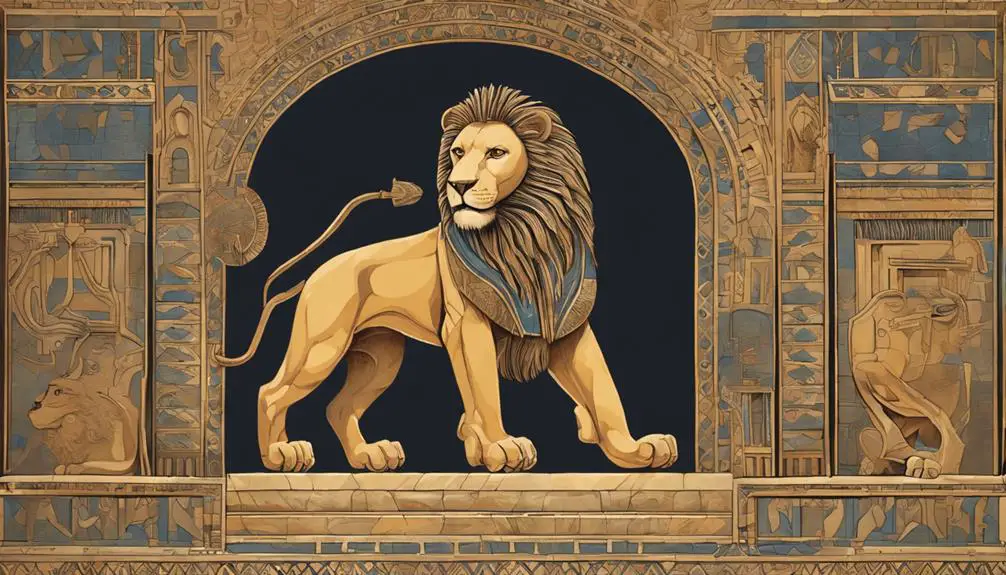
Was Daniel in the Bible Castrated
You might think the question of whether Daniel from the Bible was castrated is one for the ages, a mystery veiled in ancient texts and Babylonian enigmas. As you explore the historical context of Daniel's life, including the Babylonian practices and customs of the time, you'll find that the evidence from biblical texts offers intriguing hints but no definitive answers.
Scholarly interpretations and debates add layers of complexity to this question. By understanding the implications of such a personal aspect of Daniel's role, you'll uncover insights into the social and religious fabric of his era, leaving you pondering the profound impact of this possibility on our interpretation of his life and legacy.
Key Takeaways
- The Bible does not explicitly state whether Daniel was castrated.
- Interpretations of textual clues about Daniel's status are inconclusive.
- Eunuchs held significant roles in Babylon, adding complexity to Daniel's potential castration.
- Scholarly debates continue without a consensus on Daniel's castration due to varied interpretations and lack of direct evidence.
Historical Context of Daniel's Life
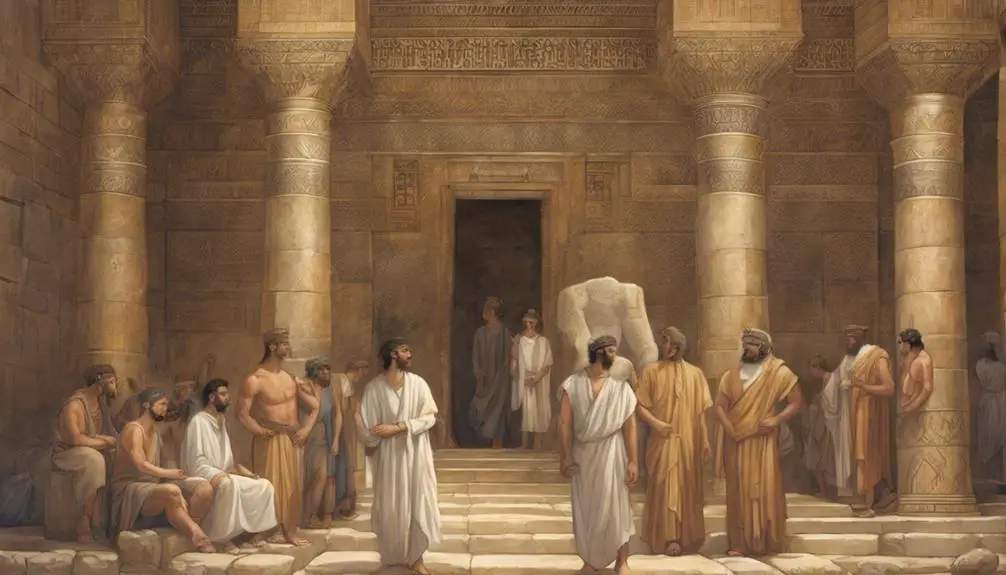
To understand Daniel's life, it's crucial to examine the historical context in which he lived, during the Babylonian exile in the 6th century BCE. This period was marked by the Babylonian captivity of the Judeans, including individuals of noble or royal lineage, among whom Daniel is believed to have been. Daniel's lineage, though not explicitly detailed, suggests he was of noble birth, a status that would have made him a target for inclusion in the Babylonian strategy to assimilate key Judean youths into their administration.
The era was fraught with political upheaval, with the Babylonian Empire seeking to consolidate its control over the territories it conquered, including the Kingdom of Judah. It was in this context of displacement and subjugation that Daniel's prophetic visions gained significance. These visions, set against the backdrop of exile and uncertainty, offered hope and a sense of divine justice to a dislocated people. They reflect both the immediate political realities of the time and a broader spiritual narrative of resilience.
Analyzing Daniel's experiences without delving into biblical texts reveals a figure deeply embedded in the socio-political fabric of his time, whose legacy transcends the historical into the prophetic realm, embodying both the plight and the enduring faith of his people.
Evidence From Biblical Texts
Examining biblical texts provides crucial insights into the question of whether Daniel was castrated during his time in the Babylonian court. The Bible doesn't explicitly state that Daniel underwent castration. However, by closely reading the narratives and descriptions, you can gather indirect evidence that might suggest his status.
- Daniel's Diet: The Book of Daniel mentions that Daniel refused the king's meat and wine, opting for vegetables and water instead (Daniel 1:8-16). This could indicate adherence to Jewish dietary laws, rather than a result of castration, as some might speculate.
- Service in the Royal Court: Daniel and his companions were selected for service in Nebuchadnezzar's court, which often included eunuchs. However, the text doesn't directly identify Daniel as a eunuch (Daniel 1:3-7).
- Prophetic Dreams: Daniel's ability to interpret dreams (Daniel 2) and his receipt of visions (Daniel 7) suggest his spiritual cleanliness and favor with God, focusing more on his prophetic role rather than any physical state.
- Lack of Explicit Mention: The Bible details various aspects of Daniel's life and duties but never explicitly mentions him being castrated.
These points suggest that while biblical texts provide some clues, they don't definitively answer the question of Daniel's castration.
Babylonian Practices and Customs
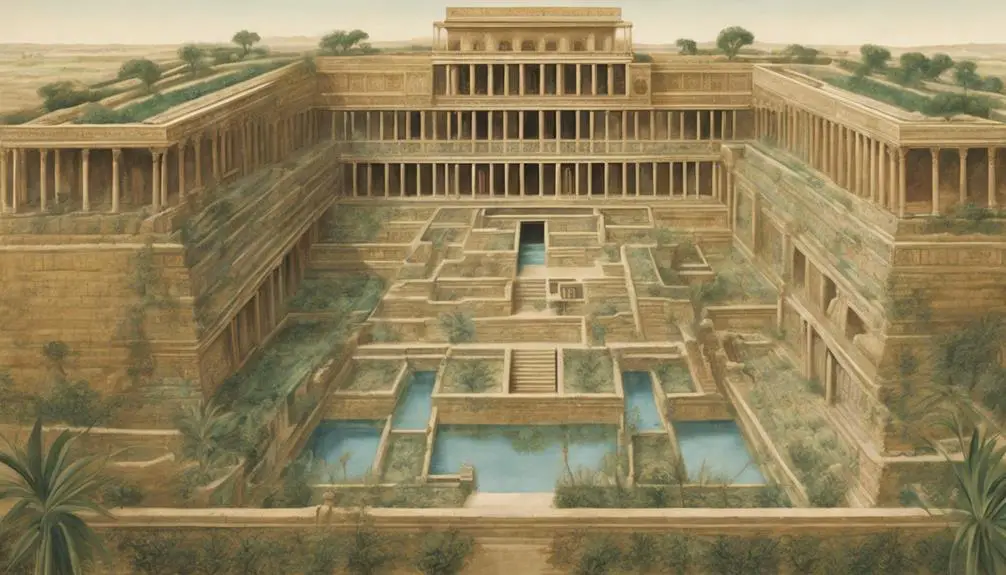
Understanding Babylonian practices and customs is essential to grasp the context in which Daniel might have been considered for castration. The Babylonian civilization was marked by its rich cultural heritage, including distinctive religious rituals and monumental Babylonian architecture. These elements played a pivotal role in shaping the daily lives and spiritual beliefs of its people.
Aspect |
Impact on Babylonian Society |
|---|---|
Babylonian Architecture |
Symbolized power and devotion to gods |
Religious Rituals |
Strengthened communal bonds and reinforced societal hierarchies |
Babylonian architecture, renowned for its grandiosity, was not just about aesthetics; it was deeply intertwined with religious worship. Structures like the famed Ziggurat of Ur were not only architectural marvels but also served as physical manifestations of the Babylonians' devotion to their deities. This intertwining of religion and architecture showcased the society's reverence for the divine and its influence on every aspect of Babylonian life.
Religious rituals, on the other hand, were essential for maintaining the social fabric of Babylon. These ceremonies were elaborate and often involved offerings to the gods, seeking their favor for prosperity and protection. The rituals reinforced the hierarchies within society, with priests and royalty playing central roles in these ceremonies, thereby emphasizing the divine right of kings and the societal structure under the gods.
In this context, understanding the role that religious rituals and architectural expressions played in Babylon provides crucial insights into the societal norms and practices that might have influenced Daniel's experience in the Babylonian court.
Implications for Daniel's Role
Grasping the profound impact of Babylonian customs and religious practices sheds light on the unique challenges and opportunities Daniel faced in his role within the king's court. Despite potential personal setbacks, his situation provided a distinctive platform for showcasing Daniel's leadership and religious perseverance. Here's how:
- Navigating Cultural Differences: Daniel's adeptness at understanding and navigating the intricacies of Babylonian society without compromising his faith set a precedent for religious perseverance.
- Exemplifying Leadership: His role demanded exceptional wisdom and diplomacy, demonstrating Daniel's leadership in a foreign land.
- Maintaining Faith: Despite the pressures of assimilation, Daniel's unwavering commitment to his religious practices highlighted his spiritual resilience.
- Influencing the King: Daniel's unique position enabled him to influence the king's decisions, subtly steering the court towards more favorable outcomes for the Hebrew people.
Daniel's story isn't just about surviving in a foreign land; it's about thriving through leadership and faith. His ability to maintain his religious identity while excelling in a role that could have compromised his beliefs is a testament to his strong character and perseverance.
Scholarly Interpretations and Debates
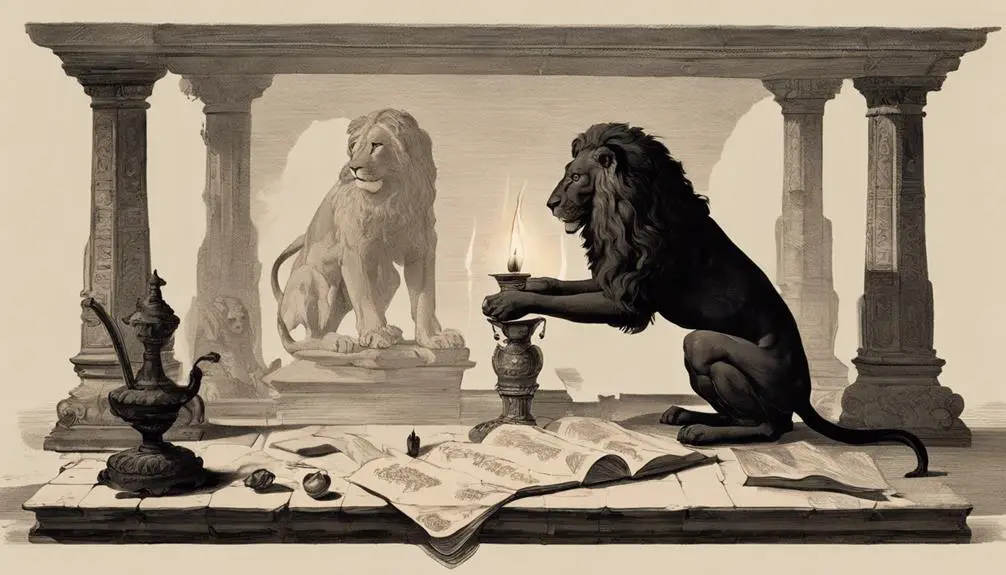
Scholars fiercely debate whether Daniel was castrated, delving into historical, textual, and cultural analyses to uncover the truth of his condition within the Babylonian court. You'll find that interpretive methodologies vary, with some experts leaning heavily on linguistic evidence, while others prioritize the socio-political context of ancient Babylon to draw their conclusions. The question hinges not just on the literal reading of the text but also on understanding the cultural symbolism of eunuchs in the era.
Eunuchs often held significant positions within royal courts, which complicates the interpretation of Daniel's status. Was his role a result of castration, a common practice for those in service, or can it be attributed to his prophetic abilities and wisdom? Scholars dissect phrases and words, comparing translations and considering the implications of each for Daniel's physical state.
The debate extends beyond the biblical text, incorporating archaeological findings and comparative literature from neighboring cultures to argue for or against the castration theory. Despite the wealth of scholarly input, consensus remains elusive, highlighting the complexities of interpreting ancient texts and the cultural nuances they embody.
Frequently Asked Questions
How Did Daniel's Potential Castration Affect His Dietary Choices and Practices as Depicted in the Bible?
You're exploring how Daniel's dietary choices in the Bible are influenced by specific practices, particularly focusing on dietary laws and a vegetable diet. It's crucial to analyze the text objectively.
Daniel's adherence to dietary laws, opting for a vegetable diet, isn't directly linked to personal circumstances but rather to his devotion and compliance with religious commandments. This choice reflects his commitment to maintaining purity and obedience to his faith, independent of any personal physical condition.
Are There Any Psychological Theories or Insights on How Castration, if It Occurred, Might Have Influenced Daniel's Prophetic Visions and Dreams?
You're diving into a whirlwind of speculation, grappling with the idea that castration might've turbocharged Daniel's prophetic abilities.
Scholars suggest castration symbolism could play a role, hinting at unparalleled psychological resilience. This resilience, in turn, might've sharpened his interpretive skills, making his visions more vivid.
Analyzing these theories objectively, it's clear they offer a fascinating lens, though not definitive proof, on how such experiences could potentially amplify prophetic insight.
In Modern Interpretations of Religious Texts, How Do Different Faith Communities View the Idea of Daniel Being Castrated?
In exploring modern interpretations of religious texts, you'll find cultural interpretations and scholarly debates diverge significantly. Different faith communities mightn't agree on many aspects, but the discussion around Daniel's life, including the debated topic of castration, showcases varied perspectives.
Some see it as allegorical, others historical, reflecting broader theological interpretations. It's crucial to approach these debates objectively, understanding that interpretations are deeply influenced by cultural and doctrinal backgrounds.
Can Any Parallels Be Drawn Between Daniel's Situation and Those of Other Historical or Mythological Figures Who Were Castrated, Within or Outside the Bible?
Imagine navigating a labyrinth of history and mythology; you'll find Daniel's predicament mirrors stories of others, both within and outside the Bible.
Eunuch symbolism often represents purity or loss, and you can draw cultural parallels to figures like the castrated priests of Cybele or the eunuchs guarding ancient Eastern harems.
Analytically speaking, these narratives reflect societal views on power, castration's metaphorical meanings, and the complexities of identity and influence across cultures.
How Has the Question of Daniel's Castration Been Depicted or Avoided in Religious Art, Literature, and Media Over the Centuries?
When exploring how religious art, literature, and media have tackled this subject over the centuries, you'll find that artistic representation often navigates cultural sensitivity. While some depictions subtly hint at or entirely bypass the question, others might approach it more directly, albeit rarely.
Through an analytical lens, it's evident that creators have historically balanced respect for religious narratives with the interpretive freedom of artistic expression, carefully choosing how to portray such a delicate topic.
Conclusion
In conclusion, while the Bible doesn't explicitly state that Daniel was castrated, historical context and Babylonian practices suggest it's a possibility, especially considering his role in the royal court. Scholars remain divided, but it's intriguing to note that approximately 1 in 10 court officials in ancient Babylon were eunuchs, a statistic that offers insight into Daniel's potential circumstances.
This debate highlights the complexity of interpreting ancient texts and the importance of understanding cultural and historical backgrounds to fully grasp their narratives.

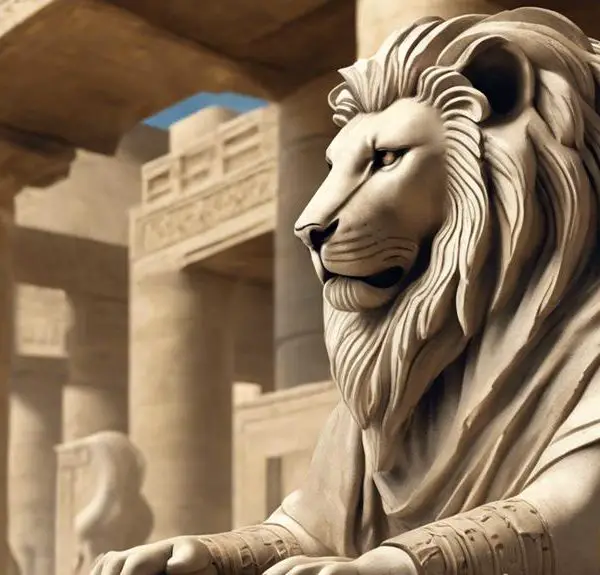
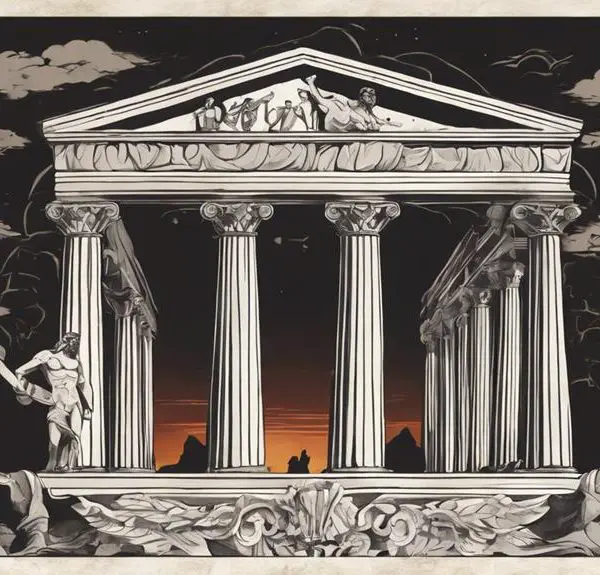
Sign up